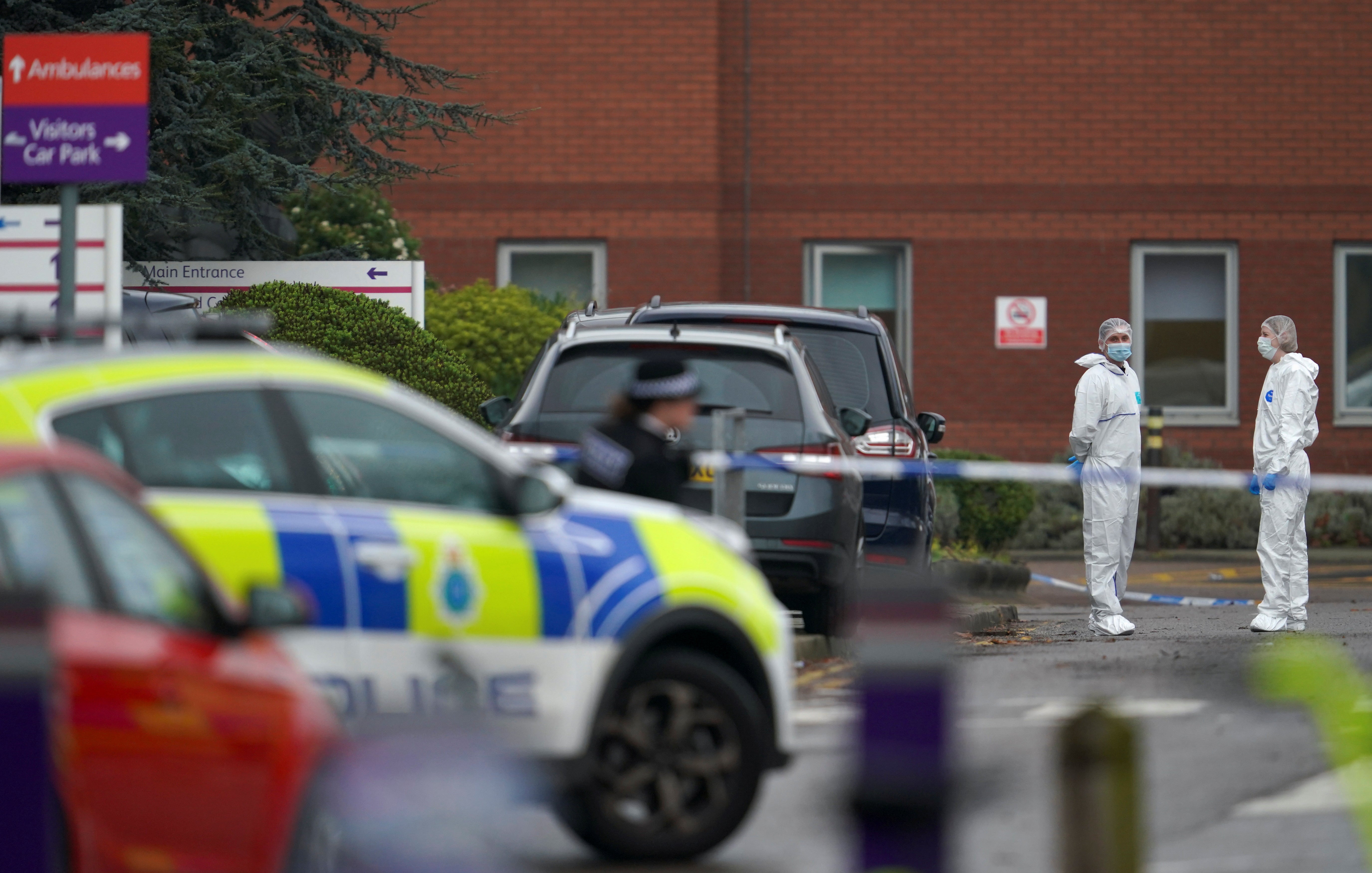Investigators struggle to piece together motive and man behind Liverpool explosion
Police are probing how a Christian convert who studied cake decorating at college turned into a terrorist, Lizzie Dearden reports

Over two days after a suspected terrorist killed himself outside Liverpool Women’s Hospital, his motivations remain unknown.
The path that led to Emad al-Swealmeen blowing up a taxi on Remembrance Sunday is unclear and as the investigation progresses, more and more missing pieces emerge.
The 32-year-old did not leave any note or other evidence stating his intentions, The Independent understands, and no terrorist group has claimed responsibility for the attack.
Al-Swealmeen, who changed his name to Enzo Almeni after arriving in the UK around seven years ago, told friends he was of Syrian origin but authorities were unconvinced.
The Home Office refused his asylum application in 2014, and he lost an appeal at the First-tier Tribunal of the Immigration and Asylum Chamber. Al-Swealmeen’s attempt to take the case further was turned down.
While the application was being considered, he was arrested for a knife offence.
In 2015, al-Swealmeen pleaded guilty to possession of a blade in a public place at Liverpool Magistrates’ Court.
He was given a conditional discharge and was not supervised by probation, but friends believe he underwent compulsory mental health treatment after the incident.
The Mersey Care NHS Foundation Trust, which provides mental health services in the region, said they could not currently give details.
A spokesman said: “We can confirm al-Swealmeen had previously accessed our services but was not a service user at the time of the incident.”
It was also in 2015 that al-Swealmeen is believed to have first expressed his intention of converting to Christianity.
He underwent an Alpha course over several months, which introduces people to the faith, and was baptised later in 2015.
Two years later, al-Swealmeen was photographed smiling at a confirmation ceremony at Liverpool Cathedral.

One of the people who met him through his new faith, Malcolm Hitchcott, housed the would-be bomber after his asylum appeals failed in 2017.
A series of Facebook photos showed al-Swealmeen enjoying days out to historical landmarks and go-karting.
Giving evidence for an appeal involving a different asylum seeker in 2015, Mr Hitchcott said some asylum seekers “might pretend to have found Jesus in order to support a false claim for asylum”.
But he told the BBC that al-Swealmeen used to pray and study the scriptures with him and his wife frequently, adding; “I was in no doubt by the time that he left us at the end of that eight months, that he was a Christian.“
A spokesperson for Liverpool Cathedral said he attended regularly leading up to his confirmation in 2017, but then “lost contact” the following year.
What al-Swealmeen did next is not clear. The City of Liverpool College confirmed to The Independent that in September 2018, he undertook a cake decorating course that lasted until summer 2019.
A website advertising the level two diploma says it teaches how to create “celebration cakes including wired flowers, royal icing, coatings and run outs, marzipan and modelling paste figures and fruits”.
Mr Hitchcott believes al-Swealmeen may have lodged a fresh asylum claim after the first was exhausted, and by the time of the attack he was living in official accommodation run by government contractor Serco.
Four other men who lived in the house were arrested after the bombing but have been released without charge.

Al-Swealmeen had rented out a separate property, a small flat around two miles away, where he is suspected to have built his bomb.
Investigators said he was picked up near the Rutland Avenue property shortly before 11am on Remembrance Sunday, and asked to be taken to Liverpool Women’s Hospital.
The blast went off as the taxi approached a drop-off point by the main entrance, and the bomber was killed inside the vehicle while the driver “remarkably” managed to escape.
Investigators believe the bomb may have failed to detonate properly, preventing further casualties.
Assistant chief constable Russ Jackson, the head of Counter Terror Police North West, said: ”There is a considerable way to go to understand how this incident was planned, prepared for and how it happened. We are gaining a better understanding by the hour but it is likely to be some time, perhaps many weeks until we are confident in our understanding of what has taken place.”
The explosion was the second incident to be declared a terror attack within a month in Britain, causing the national terror threat level to be raised from substantial to severe.
The lack of warning has caused unease in security circles, and The Independent understands the suspect was not previously known to MI5 or counter-terror police.
Speaking in the House of Commons on Tuesday, the policing minister Kit Malthouse said the investigation had yet to establish the full picture of al-Swealmeen’s online and offline activities, lifestyle and associates.
“The police have stated that the motivation for this incident is yet to be understood,” he added.
“However, this is a further stark reminder about the threat we all face from terrorism. Our world-class security and intelligence agencies and counter-terror police work night and day to keep us safe.”


Bookmark popover
Removed from bookmarks